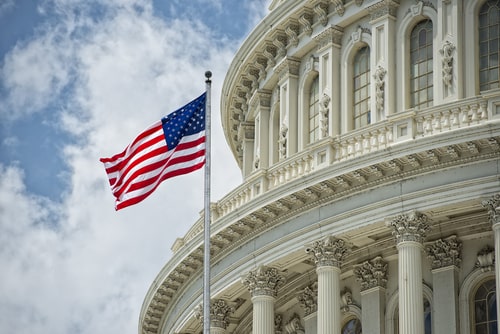
There are many sophisticated kinds of financial warfare.
China holds a trillion dollars of US debt, which it could dump on global markets and thus trigger an interest rate spike for the US economy. This act would be risky for China as a slowdown in the US economy would lead to even less appetite for Chinese exports. The US dollar might also go down in value and make Chinese goods less appealing, and whatever US treasuries China is left with would also be worthless.
This illustrates the interdependencies between Chinese production and American consumption, which have together formed the backbone of the global economy over the past two decades.
President Xi Jinping responded by visiting a rare earth facility – a reminder of China’s dominance in collecting and processing the rare earth minerals essential to every smartphone, laptop, and hybrid car. The CEOs of two US headphone manufacturers told The Verge that China is the only place to buy the neodymium magnets required for their products. The raid on rare earth minerals by China, which is stockpiling these materials puts them in a powerful position as the controller of the supply in the same way that OPEC held sway in the 1970s.
If China were to withhold supply it could potentially disable many Silicon Valley industries. Electric car motors, iPhones, military jet engines, batteries, and satellites all have something in common: They require rare earth elements to function. Rare-earth elements are a group of 17 metals that form under the Earth’s surface and are difficult to find and extract. According to Business Insider magazine, they are crucial to the tech and defence industries; rare-earth metals have unique magnetic, heat-resistant, and phosphorescent properties that no other elements have. This means that they’re often non-substitutable materials in smartphone and missile production. China controls the lion’s share of mineable rare-earth deposits. On average, the country has accounted for more than 80% of the global production and supply of these metals during the past decade, according to the US Geological Survey (USGS).
Few countries can compete with China’s monopoly on the rare-earth market. According to Bloomberg, the US relies on China for 80% of its rare-earth imports. That puts China in a powerful position: If its leaders choose to restrict rare-earth exports to the US — something president Xi Jinping recently hinted could happen — that could temporarily cripple companies like Apple and Lockheed Martin. Disruptions in Chinese supply would, however, stoke concerns in Europe and Japan that the country is not a reliable supplier. This would hasten moves already underway to reduce reliance on Chinese supply as it did in 2010 when the Japanese industry started to look at alternatives.
China could also impose sanctions on American businesses operating within its borders. The vast majority of Apple’s smartphone business is built on Chinese land. Chipmakers are even more dependent, as analysis from HSBC finds that Qualcomm has 65 per cent of its revenue vulnerable to disruption in trade with China.
Meanwhile, Chinese imports account for 26 per cent of Walmart’s merchandise. Additional research by UBS says the Trump administration’s tariffs imposed on Chinese imports “could put $40 billion of sales and 12,000 stores at risk.”
Yet with Apple and companies like Nike, General Motors, and Walmart employing millions of Chinese workers, Trump might just have the leverage he needs to go in studs up. Both economies potentially have much to lose then.
Yet President Trump for all his reported foibles could well be on to something. There is an asymmetry in both countries’ economic interdependency that is at the heart of why the Trump administration could afford to self-harm to a certain extent in its tariff regime while China cannot indulge in similar costs to score trade negotiation points.

Related Articles
Reinsurance
Reinsurance
Reinsurance